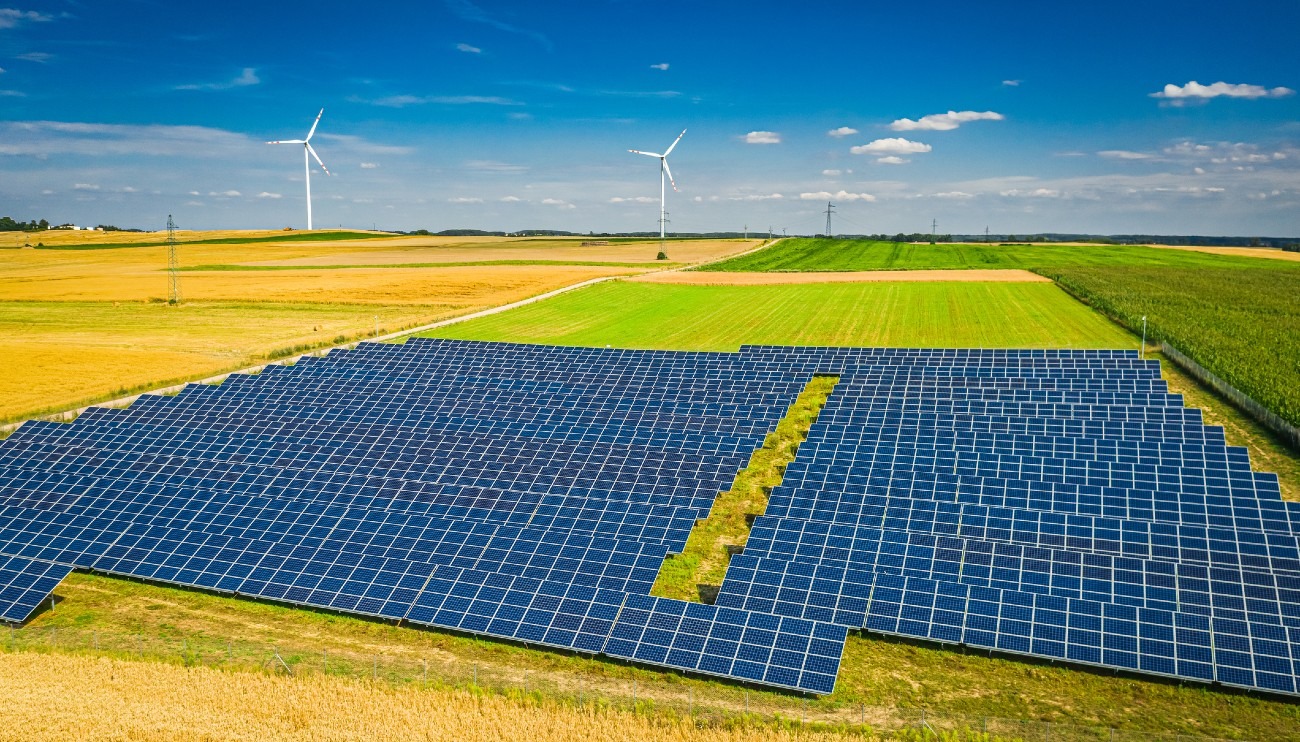Renewable energy capacity must triple and the rate of annual energy efficiency increases must double by 2030. This translates into a cumulative investment of USD 31.5 trillion to renewable power, electrical networks, flexibility measures, energy efficiency, and conservation, by 2030.
The role of emerging economies will be key in achieving the levels of investments in energy transition infrastructure. While most emerging economies have committed to achieving net zero greenhouse gas emissions, the funds to turn those commitments into reality are greatly insufficient at present.
The world faces a number of pressing crises; 2024 was the hottest year on record worldwide, breaching 1.5°C of pre-industrial levels for the first time, and the consequences of climate change have been writ large in every region in the form of floods, droughts, wildfires and other hazards. We truly now face a climate emergency. Under the UAE Consensus adopted at COP28, global ambitions for renewable energy and efficiency have become clearer. The International Renewable Energy Agency (IRENA) is tasked to track progress to ensure that targets remain actionable and transparent.
At COP29, parties reached an agreement to triple climate finance for developing countries to USD 300 billion annually – an important step despite still falling short of the USD 3.8 trillion per year required for the energy transition.
In parallel, significant progress on carbon markets was achieved under Article 6 of the Paris Agreement, clarifying how countries can authorise trades of carbon credits and establishing standards under the centralised carbon crediting mechanism. This could unlock new financial flows for emerging economies, especially when combined with capacity-building support for least developed nations.
During the ‘High-level Panel on Energy Transition Pathways in Emerging Economies’, at IRENA’s 15th Assembly, high-level representatives discussed pathways to accelerate and scale up renewables deployment, and harness public finance to derisk private capital in emerging economies. Countries shared their progress towards net-zero targets, the critical role of global forums such as the G20, and the importance of South-South cooperation.
In her opening remarks, IRENA Deputy Director-General, Gauri Singh, said, “To scale up energy transition and investment, it is vital to mobilise public and private sector financing that are supported by international collaboration and robust enabling polices. Public funds must be deployed to derisk investment, leverage private capital and provide low-cost, long-term financing for energy transition projects.” She also highlighted the role that emerging economies will play in the path ahead, requiring a diverse group of stakeholders to collaborate in order to scale up renewable energy deployment.
Strong energy planning was also discussed as a key factor in derisking investments. Comprehensive national energy plans reduce uncertainties, signal clear priorities to investors, and coordinate actions across government ministries, local authorities, and the private sector.
At the panel discussion, H.E. Joan Groizard, Spain’s Secretary of State for Energy, explained that proactive policy making, and integrated, long-term planning can strengthen the bankability of projects, further elaborating his government’s effort in the space, “We provide guidance on the permitting, we provide clear signals of what the government thinks is a good project.”
In this respect, the G20 can provide a powerful platform for expanding investment and improving planning in emerging markets and developing economies (EMDEs) through the proposed Global Coalition for Energy Planning (GCEP), the goal of which is to support decision-making on financing and investment and to highlight the effectiveness of energy planning as a foundation for energy-transition investments in EMDEs.
Still in the topic of investments, discussions convened at the ‘Ministerial Dialogue on Innovative Sustainable Finance’ later on the same day underscored the growing importance of new financial instruments to accelerate renewable energy deployment. Instruments such as blended finance, green bonds, and carbon credit mechanisms can help manage risk and build confidence among investors looking to invest in EMDEs.
During her intervention, H. E. Lisa Cummins, the Minister of Energy and Business, Barbados, shared how the debt-to-climate sustainability swap mechanism has not only strengthened Barbados’s financial position to deploy large-scale renewable energy project, but also demonstrated a scalable model for other nations seeking to increase investments in clean energy infrastructure.
For private investors and developers, investment risks in EMDEs have an immense impact on the cost of capital and project bankability. Yet the nature and level of those risks vary widely within the diverse EMDEs. To devise appropriate and suitable measures and instruments for each country, investment risks must be analysed using specific country contexts.
Ultimately, bridging financing gaps requires a multi-pronged approach. This includes using public funds more strategically to derisk private investments, leveraging innovative instruments such as green bonds and carbon credits, and fortifying cross-border collaboration.
By combining robust international support with sound domestic policy frameworks, emerging economies can unlock their full potential to drive global decarbonisation. The path is ambitious but increasingly achievable – if the international community unites in supporting these crucial regions in unlocking the wide, socio-economic benefits of the energy transition.
Source link
www.irena.org

